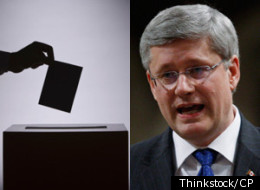In anticipation of St. Patrick's Day, police cleared protestors from the Occupy Dublin site early Thursday morning.
The Guardian reports that only 15 people were at the camp outside Ireland's Central Bank when it was raided.
[Click here for the latest Occupy Wall Street updates.]
Authorities removed large tents, wooden shacks and a kitchen before hosing down the camp site, Ahram Online reports. Protesters told the site that police started pulling apart their tents while they were still sleeping. One arrest was made.
"We're not going to go away, we're in it for the long haul," Jim Mclean one of the 15 protesters told Ahram Online. "They (the government) are embarrassed because we're highlighting issues they're not dealing with."
On Wednesday, Tourism Minister Leo Varadkar said it was a shame protesters refused to willingly leave the site ahead of the the St. Patrick's Day festival.
"I think it's disappointing that they're not going to move the camp for a few days," Varadkar told the BBC. "I understand they feel very strongly about their politics but I'm sure they don't want to damage the festival."
Original Article
Source: Huff
Author: --
The Guardian reports that only 15 people were at the camp outside Ireland's Central Bank when it was raided.
[Click here for the latest Occupy Wall Street updates.]
Authorities removed large tents, wooden shacks and a kitchen before hosing down the camp site, Ahram Online reports. Protesters told the site that police started pulling apart their tents while they were still sleeping. One arrest was made.
"We're not going to go away, we're in it for the long haul," Jim Mclean one of the 15 protesters told Ahram Online. "They (the government) are embarrassed because we're highlighting issues they're not dealing with."
On Wednesday, Tourism Minister Leo Varadkar said it was a shame protesters refused to willingly leave the site ahead of the the St. Patrick's Day festival.
"I think it's disappointing that they're not going to move the camp for a few days," Varadkar told the BBC. "I understand they feel very strongly about their politics but I'm sure they don't want to damage the festival."
Original Article
Source: Huff
Author: --
































